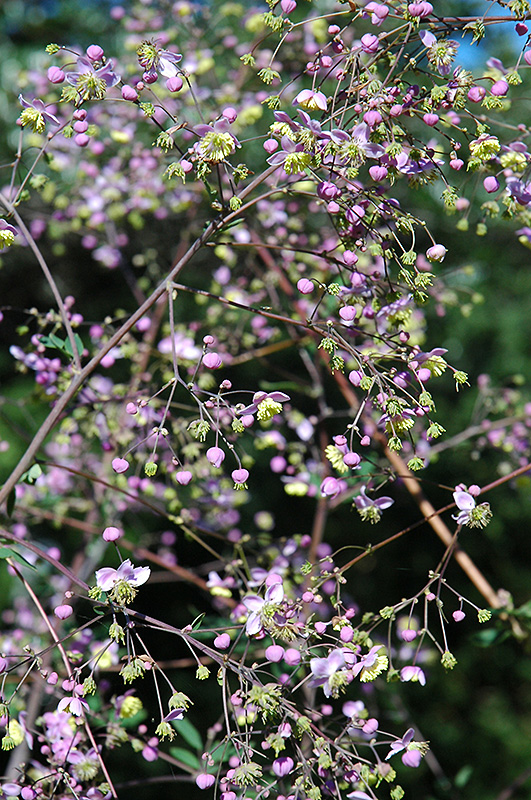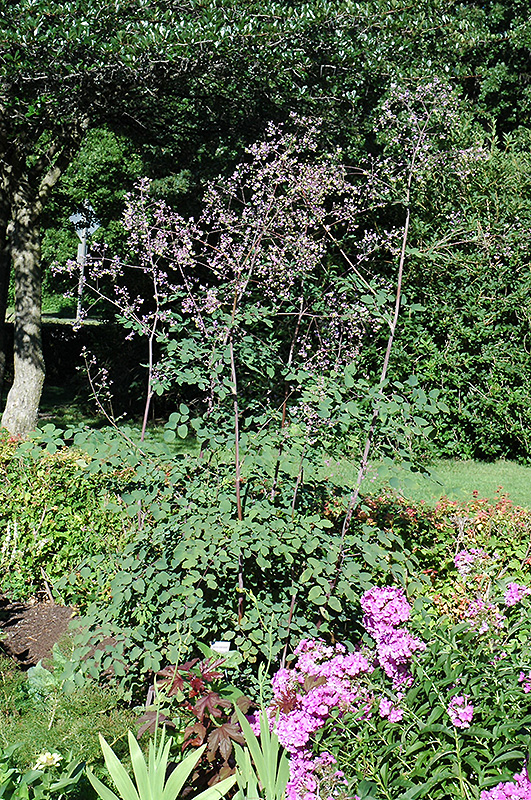VANDERMEER
PLANT LIBRARY
Find the perfect plant for your space by browsing through this extensive selection that we typically carry every year.
This library is for information purposes only.
Rochebrun Meadow Rue
Thalictrum rochebrunianum
Plant Height: 3 feet
Flower Height: 5 feet
Spacing: 18 inches
Sunlight:
![]()
![]()
Hardiness Zone: 4a
Ornamental Features
Rochebrun Meadow Rue features airy spikes of lilac purple flowers with lemon yellow overtones rising above the foliage from mid to late summer. The flowers are excellent for cutting. Its round leaves remain bluish-green in colour throughout the season. The deep purple stems are very colorful and add to the overall interest of the plant.
Landscape Attributes
Rochebrun Meadow Rue is an open herbaceous perennial with a rigidly upright and towering form. Its medium texture blends into the garden, but can always be balanced by a couple of finer or coarser plants for an effective composition.
This is a relatively low maintenance plant, and should be cut back in late fall in preparation for winter. It is a good choice for attracting bees and butterflies to your yard, but is not particularly attractive to deer who tend to leave it alone in favor of tastier treats. It has no significant negative characteristics.
Rochebrun Meadow Rue is recommended for the following landscape applications;
- Accent
- Mass Planting
- General Garden Use
- Naturalizing And Woodland Gardens
Planting & Growing
Rochebrun Meadow Rue will grow to be about 3 feet tall at maturity extending to 5 feet tall with the flowers, with a spread of 24 inches. When grown in masses or used as a bedding plant, individual plants should be spaced approximately 18 inches apart. It grows at a medium rate, and under ideal conditions can be expected to live for approximately 10 years. As an herbaceous perennial, this plant will usually die back to the crown each winter, and will regrow from the base each spring. Be careful not to disturb the crown in late winter when it may not be readily seen!
This plant does best in partial shade to shade. It requires an evenly moist well-drained soil for optimal growth. It is not particular as to soil type or pH. It is somewhat tolerant of urban pollution. This species is not originally from North America. It can be propagated by division.






